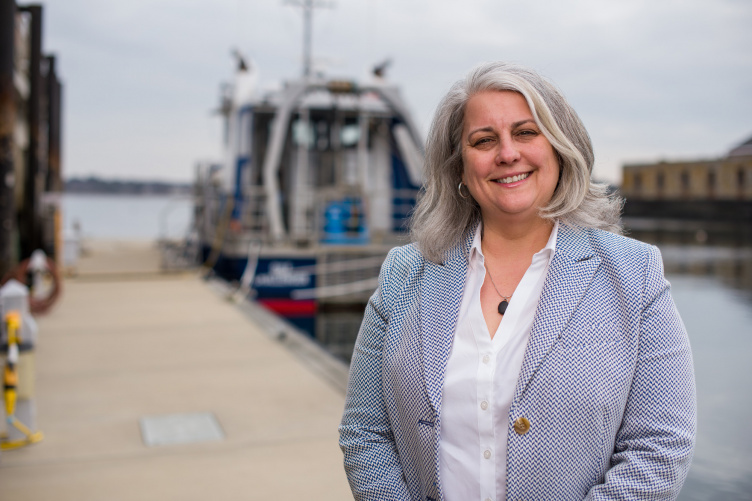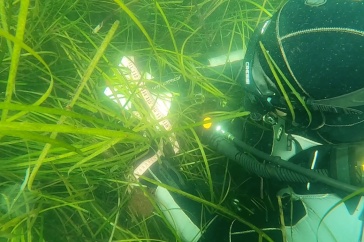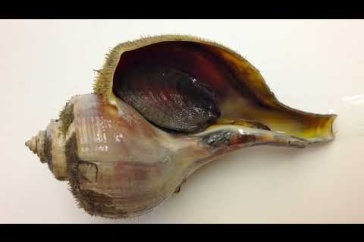
Diane Foster, professor of mechanical and ocean engineering at the University of New Hampshire, is the new director for the School of Marine Science and Ocean Engineering.
Diane Foster, professor of mechanical and ocean engineering at UNH, has taken the helm of the university's School of Marine Science and Ocean Engineering (SMSOE) as it works to advance scientific understanding of the world’s oceans in a rapidly changing climate.
“A leader on campus and in her field of coastal sediment transport, Diane brings a great combination of academic experience and commitment to research at both the undergraduate and graduate level,” said Provost Wayne Jones. “She was instrumental in our efforts to establish an undergraduate ocean engineering program and expand our ocean engineering research capacity with a major renovation and building expansion. Her focus on increasing collaboration among colleges will position UNH to address increasing complex societal problems impacted by our oceans.”
Established in 2013, the marine school is UNH’s first ‘interdisciplinary school’, designed to address today’s highly complex ocean and coastal challenges through integrated graduate education, research and engagement. Combining traditional faculty and program strengths in oceanography, marine biology and ocean engineering with an emerging marine policy focus, the SMSOE provides its students with the scientific underpinnings of these disciplines while training them to contribute to and engage in scientifically-informed policy and resource management.
UNH is in the top 10 of all institutions receiving marine-related funding from the National Science Foundation. Currently, more than 70 faculty members teach marine and ocean engineering-related courses to 300 undergraduate and 100 graduate students. UNH research has a regional, national and international impact on all aspects of the marine environment, from protected estuaries to the open ocean, from the seafloor to the atmosphere above, from the water column to the plant and animal life that inhabits it.
“I am honored and excited to serve and lead a tremendous interdisciplinary community of students, staff, and faculty who are advancing the understanding of compelling scientific problems ranging from our global oceans to our coastal waters,” said Foster. “Extending beyond the ocean horizon, I believe the future of higher education is dependent on the ability to thoughtfully imbed interdisciplinary activities into inherently disciplinary structures as we work to make real and lasting changes that will advance scientific discovery and impact our local and global societies.”
The School of Marine Science and Ocean Engineering maintains three specialized facilities—the Judd Gregg Marine Research pier and laboratory facilities in New Castle, the Jackson Estuarine Laboratory on Great Bay in Durham, and the Chase Ocean Engineering Laboratory on the UNH campus in Durham—as well as supports the Shoals Marine Laboratory on Appledore Island and oversees a diverse fleet of research vessels.
The Institute for the Study of Earth, Oceans, and Space (EOS) is UNH’s largest research enterprise, comprising five centers with a focus on interdisciplinary, high-impact research on Earth and climate systems, space science, the marine environment and seafloor mapping. With more than $43 million in external funding secured annually, EOS fosters an intellectual and scientific environment that advances visionary scholarship and leadership in world-class research and graduate education.
-
Written By:
Erika Mantz | Communications and Public Affairs | erika.mantz@unh.edu
-
Compiled By:
Rebecca Irelan | Institute for the Study of Earth, Oceans, and Space | rebecca.irelan@unh.edu | 603-862-0990

















































